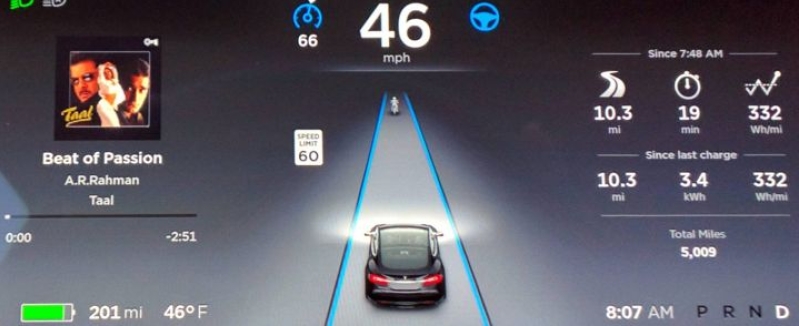
Tesla continues to break new ground with their range of electric powered vehicles, and being more valuable than Ford at the moment in terms of paper value, it goes to show the amount of faith that investors have in the company. Tesla intends to improve on its Autopilot feature with a brand new update, where the entire focus would be to ensure a smoother ride as long as the driver engages the autonomous highway driving system. True to form, Tesla CEO Elon Musk tweeted news of the upcoming update earlier this week, citing that this brand new software update will only arrive some time early next month.
Great -- while we do know that a software update is on its way, what other options do we have when it comes to additional features that will accompany this particular update? Musk himself decided to keep the cards pretty close to his chest, although he has revealed that the update will place a particular emphasis on the control algorithm. The control algorithm itself will be able to determine event timings -- such as how and when Autopilot will engage in acceleration and brake. This particular improved update ought to be able to avoid starts and jitters all of a sudden, having been described to feel "as smooth as silk" as that would certainly not sit well with those who ride within the confines of said Tesla vehicle.
Excited about the Tesla Autopilot software release rolling out next month. New control algorithm feels as smooth as silk.
— Elon Musk (@elonmusk) May 22, 2017
Any updates that are released for Tesla’s Autopilot system will be separated by the hardware generation of the vehicle. For instance, newer Tesla models do come with different sensor and computing chipsets on board, and these will, in due time, have the ability to be competent enough in a full, self-driving capacity. As for the ‘labeled’ HW2 cars, those have been rather slow when it comes to obtaining the right kind of updates in order to ensure that they end up on par with HW1 vehicles in terms of features. Musk did provide a glimmer of hope at the end though, citing that the month of June would also most probably see Tesla’s collection of HW2 cars receive perpendicular automatic parking and rain sensor capabilities.
If there is one particular challenge that a fully autonomous vehicle has to work around or overcome, it would be driving in the most human manner possible. I am not referring to driving while texting or having just one hand on the wheel with the other occupied with something else, or even pushing one’s body even though one is dead tired. It is more of the question of “The car is not driving the way that I would”, which is pretty much the same as that of having a new driver behind the wheel while you, a seasoned veteran, sits behind or beside and bellow instructions “Avoid that car!” or “Did you turn on the signal?”, among others. In other words, it is a constantly moving target, to be able to have a fully autonomous driving system that will be fluid enough to keep its human passengers happy.
After all, Tesla’s Autopilot is not an autonomous driving system. It is actually a highway assistance feature, where the driver still needs to remain alert so that he is able to resume full control at any time, but the challenge remains the same. How can a vehicle with an autonomous driving system ensure that its human passenger is comfortable enough to place his or her life at stake, without sacrificing on efficiency and effectiveness? There are mixed feelings when it comes to Tesla's Autopilot, where there has been instances where the Autopilot feature is said to have saved a family's life, while in another case, it was the prime suspect involving a minor accident between a civilian and the police.






